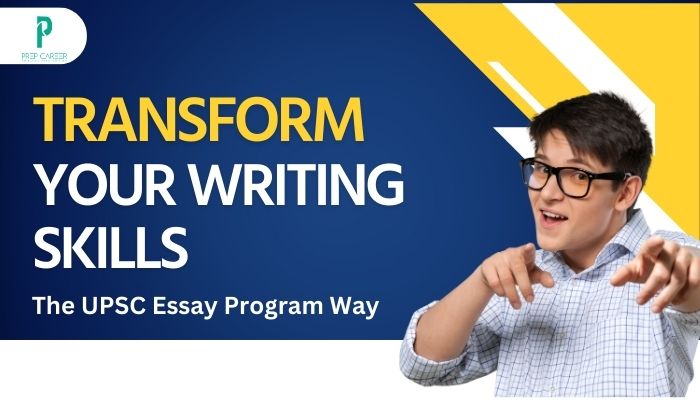
Unlocking the Secrets: A Step-by-Step Guide to History Optional Answer Writing
Answer writing plays a crucial role in scoring well in the history optional paper of various competitive examinations. It requires a unique approach that combines comprehensive knowledge, analytical skills, and effective presentation. This step-by-step guide aims to unravel the secrets of mastering history optional answer writing, providing you with a framework to enhance your performance and maximize your scores. So, let us embark on this journey together and unlock the secrets to success!
Step 1: Understanding the Question: The first step is to carefully read and understand the question. Pay attention to the keywords, such as analyze, discuss, evaluate, or critically examine. Identify the core theme and the specific demand of the question to ensure that you address it adequately.
Step 2: Knowledge Enhancement: History is a vast subject, and to excel in answer writing, you need to have a strong foundation of historical facts, events, and concepts. Continuously enhance your knowledge through extensive reading of relevant books, academic journals, and reputable online sources. Develop a habit of noting down key points, dates, and significant arguments while studying to have a quick reference for future answers.
Step 3: Structuring Your Answer: An organized and coherent structure enhances the readability of your answer. Begin with an introduction that provides a brief background and contextualizes the topic. Follow it with a well-defined thesis statement or the main argument you intend to make. Then, divide the body of your answer into paragraphs, each discussing a distinct subtopic or argument. Use headings and subheadings to provide clarity and facilitate easy navigation for the examiner. Finally, conclude your answer by summarizing the main points and presenting a balanced perspective.
Step 4: Analytical Approach: Demonstrate your analytical skills by critically analyzing the question and presenting multiple perspectives. Avoid a purely descriptive approach and instead focus on interpreting historical events, causes, consequences, and significance. Support your arguments with relevant examples, evidence, and quotations from renowned historians. Remember to critically evaluate different viewpoints and provide a well-reasoned and balanced conclusion.
Step 5: Time Management: Time management is crucial during the examination. Practice writing answers within a time limit to improve your speed and efficiency. Allocate appropriate time for each section of the answer, ensuring that you cover all relevant aspects. Be mindful of the word limit and avoid overwriting or underwriting. Regular practice will help you strike the right balance and complete your answers within the given time frame.
Step 6: Language and Presentation: Developing a lucid and coherent writing style is essential for effective communication. Use simple and concise language while avoiding jargon or excessive verbosity. Maintain a formal tone throughout your answer. Structure your paragraphs logically, using appropriate connectors and transition words to ensure a smooth flow. Neatly present your answer with clear headings, subheadings, and bullet points wherever necessary.
Step 7: Review and Revision: Always allocate some time for reviewing and revising your answers. Check for grammatical errors, spelling mistakes, and sentence construction. Ensure that your answer addresses all aspects of the question and provides a well-rounded perspective. Review your answer critically, imagining yourself as an examiner, and make necessary improvements for clarity and coherence.
Also Read :- Crack the IAS with Ease: Boost Your Preparation with UPSC Mains Test Series
Enhancing Answer Writing Skills
To enhance your answer writing skills further, it is crucial to focus on critical thinking and research skills. Let us delve deeper into these areas:
»Understanding the Art of Critical Thinking:
Critical thinking is an essential skill for effective answer writing. It involves evaluating information, arguments, and ideas in a systematic and objective manner. Here are some tips to enhance your critical thinking abilities:
a) Analyze Assumptions: Question the underlying assumptions and biases present in the question or argument. This will help you approach the topic from a broader perspective and develop a well-rounded answer.
b) Evaluate Evidence: Scrutinize the evidence provided in historical texts or other sources. Assess the credibility, relevance, and limitations of the evidence and use it to support your arguments or counter them with alternative viewpoints.
c) Consider Multiple Perspectives: Acknowledge and examine different viewpoints and interpretations of historical events or theories. Compare and contrast various arguments to develop a comprehensive understanding and present a balanced response.
d) Identify Logical Fallacies: Be aware of common logical fallacies such as hasty generalizations, ad hominem attacks, or false cause-effect relationships. Avoid these fallacies in your answers and focus on logical reasoning and evidence-based arguments.
e) Reflect on Implications: Consider the implications of your arguments or the historical events you discuss. Think about the wider consequences, long-term impacts, and potential counterarguments. This will demonstrate a deeper level of critical thinking in your answers.Also Read :- Mastering the UPSC Prelims: The Importance of Test Series
»Developing Research Skills and Using Appropriate References:
Research skills are vital for gathering relevant information and supporting your arguments with credible references. Here are some strategies to improve your research skills and utilize appropriate references effectively:
a) Diversify your Sources: Explore a wide range of sources, including books, research papers, academic journals, reputable websites, and primary sources. This will provide you with a broader understanding of the topic and help you develop well-informed answers.
b) Evaluate Source Credibility: Assess the credibility and reliability of the sources you use. Look for reputable authors, academic institutions, or established publications. Avoid relying solely on unreliable or biased sources.
c) Take Effective Notes: While researching, take concise and organized notes. Note down key arguments, quotes, and references to specific pages or sources. This will save time during answer writing and make it easier to cite your sources accurately.
d) Properly Attribute References: When using information or ideas from external sources, ensure that you provide proper attribution. Follow the citation style specified by your exam or institution, such as MLA or APA, to maintain academic integrity.
e) Use References Sparingly: While it is important to support your arguments with references, avoid excessive reliance on quotations or excessive citations. Your answers should primarily reflect your understanding and analysis of the topic.
f) Synthesize Information: After conducting thorough research, synthesize the information gathered from different sources. Integrate relevant ideas and arguments into your answers, providing a coherent and well-rounded perspective.
Remember, improving critical thinking skills and research abilities takes time and practice. Regularly engage in critical reading, discuss historical topics with peers, and seek feedback on your answers. By honing these skills, you will significantly enhance your answer writing and excel in history optional examinations.Also Read:- Study Civil Services with offline & online coaching
Conclusion
Answer writing in history optional requires a combination of knowledge, analytical skills, and effective presentation. By following this step-by-step guide, you can unlock the secrets to history optional answer writing and improve your performance in competitive examinations. Remember to practice regularly, seek feedback, and adapt your approach based on the specific requirements of each examination. With dedication and perseverance, you can excel in the history optional paper and achieve your desired goals. Best of luck!
-1703874678262.png)


